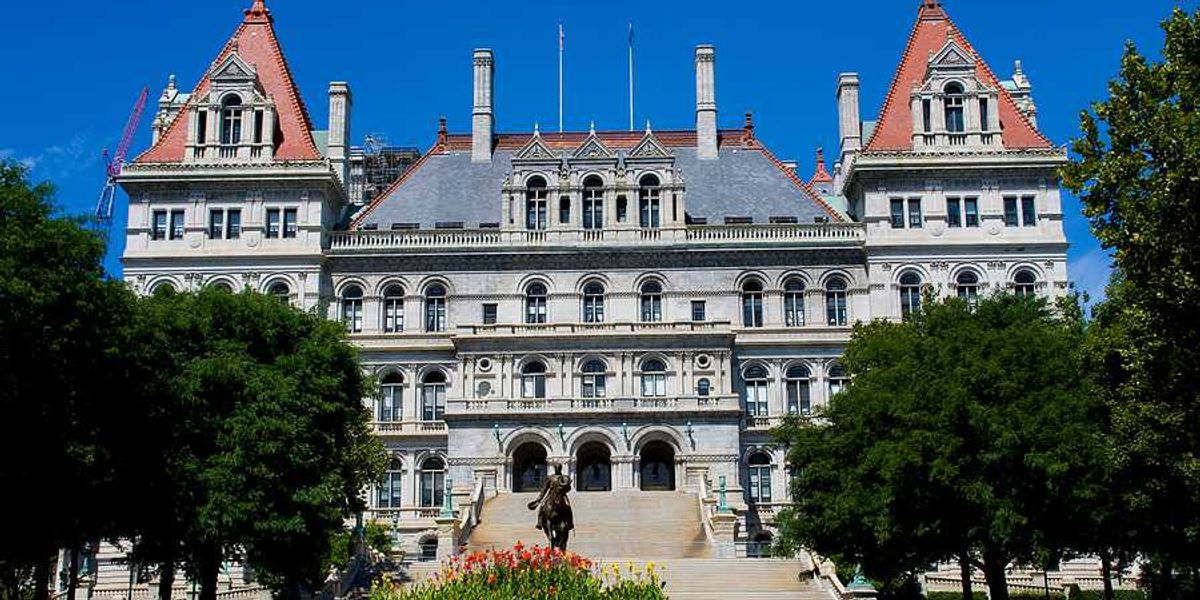minnesota
Minnesota’s new clean energy laws could position Walz as a national climate leader
Governor Tim Walz’s reforms to Minnesota’s clean energy permitting process could make him a key player in national climate policy if Kamala Harris wins the 2024 election.
Jennifer McDermott and Isabella O’Malley report for The Associated Press.
In short:
- Walz signed legislation to streamline permitting for clean energy projects in Minnesota, eliminating some of the biggest bureaucratic hurdles.
- The new law is seen as a model that other states could follow, though replicating it federally may be challenging.
- Walz’s experience with these reforms could shape his role in climate policy if he becomes vice president.
Key quote:
“Any permitting bill that makes it easier to build clean energy infrastructure and getting connected is really vital to all of our climate goals.”
— Ben Pendergrass, vice president of government affairs at Citizens Climate Lobby
Why this matters:
Speeding up the clean energy transition is vital in meeting climate goals. Walz’s legislative experience could be influential in shaping national energy policies.
Walz's shifting stance on environmental policy
Minnesota Governor Tim Walz, once known for his conservative environmental record in Congress, has embraced aggressive climate policies as the vice presidential nominee.
Emma Dumain, Kelsey Brugger and Nico Portuondo report for E&E News.
In short:
- Walz supported controversial projects like the Keystone XL pipeline during his congressional tenure.
- As governor, he shifted to lead Minnesota in adopting stringent environmental policies, including a clean electricity standard targeting net-zero emissions by 2040.
- Observers note Walz’s evolution on climate policy aligns with broader shifts in the Democratic Party's priorities.
Key quote:
“He has evolved as his role has evolved and the issue of climate change has evolved.”
— Trent Bauserman, former congressional climate adviser
Why this matters:
Walz’s evolution reflects the growing importance of climate action in American politics.
Vice-presidential nominee Tim Walz's environmental stance, scrutinized
Minnesota Governor Tim Walz, now the Democratic vice-presidential nominee, faces criticism from environmentalists for his cautious approach to mining in the state, balancing economic development with environmental protection.
In short:
- Governor Tim Walz has been criticized for not taking decisive action against mining developments in Minnesota, despite being viewed as a climate champion. Concerns are raised about potential environmental damage from mining projects near critical watersheds.
- Walz is caught between promoting economic growth and securing resources for clean energy while protecting Minnesota's environment. He supports sustainable mining and maintaining a robust permitting process without overtly opposing mining interests.
- Environmental groups express disappointment in Walz's defense of mining permits and call for stronger regulations, while mining companies and unions see him as pragmatic and supportive of job creation.
Key quote:
“On many issues, he’s been very strong for the environment, but on this one, he’s been on the sidelines.”
— Chris Knopf, executive director, Friends of the Boundary Waters Wilderness.
Why this matters:
Minnesota's untapped nickel and copper deposits are vital for clean energy technology. As demand for these metals grows, the state’s mining policies are under scrutiny for their potential environmental impacts, including water pollution and habitat disruption, and their economic implications for local communities and the broader region.
Related: Tim Walz’s energy record sparks debate on environmental policies
Tim Walz’s energy record sparks debate on environmental policies
Minnesota Governor Tim Walz, chosen by Kamala Harris as her vice-presidential running mate, has a mixed energy record, balancing aggressive low-carbon policies with controversial support for an oil pipeline.
Brian Dabbs, Carlos Anchondo, and Jeffrey Tomich report for E&E News.
In short:
- Governor Tim Walz has enacted one of the most aggressive carbon-free power laws in the U.S. but has faced criticism for supporting the Line 3 oil pipeline.
- Walz's energy policies aim to transition Minnesota's power sector to clean energy, yet his stance on fossil fuels has led to both praise and criticism.
- Environmentalists see his selection as a chance to further climate goals, while critics view it as a continuation of existing energy policies.
Key quote:
“His lack of action to stop the Line 3 pipeline shows a troubling deference to fossil fuel interests.”
— Collin Rees, political director of Oil Change U.S.
Why this matters:
Tim Walz's selection as Kamala Harris’s running mate highlights the ongoing tension between advancing clean energy and maintaining fossil fuel infrastructure. His energy record reflects the complex challenges of balancing environmental progress with economic and political realities.
Related:
How 2023 changed the way states do climate policy
Minnesota Democrats, newly in control of the state government, began 2023 by enacting a clean electricity standard. Michigan lawmakers followed suit months later — as one of their final acts before gaveling out for the year.
How giving trucks an electric boost can help cut mining pollution in Minnesota
U.S. Steel and Minnesota Power have applied for a U.S. Department of Energy grant in hopes of kickstarting a project that seeks to test a system to partially power mining trucks with electricity.
Is Xcel Energy holding back substation capacity from solar developers? It’s complicated
Clean energy advocates believe technical restrictions imposed by Xcel Energy are curtailing the expansion of solar energy in Minnesota.









